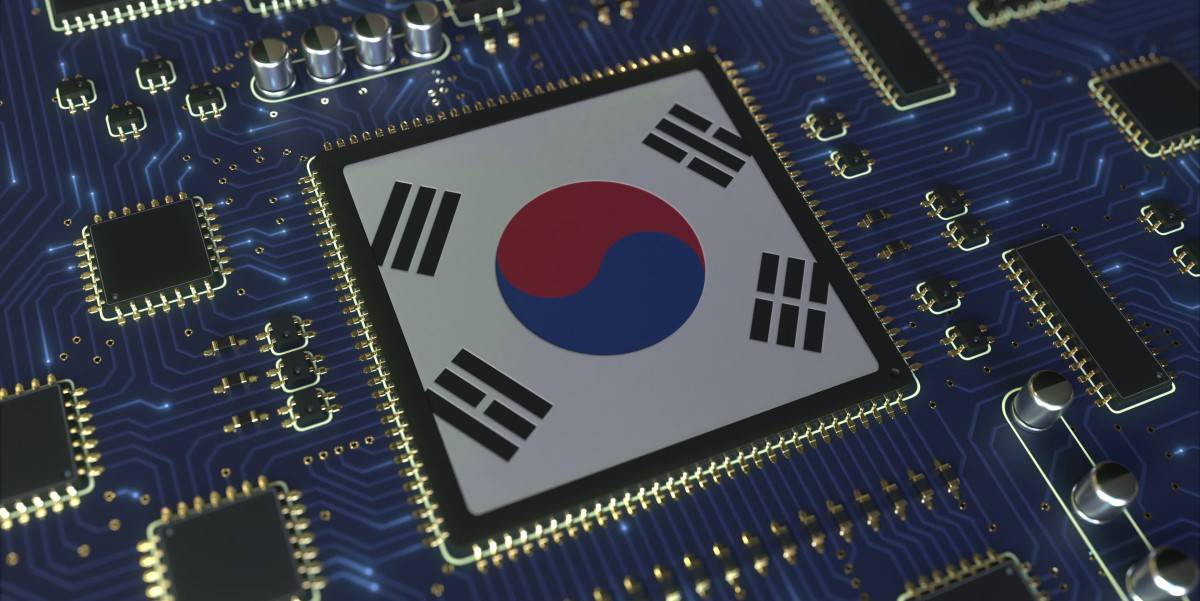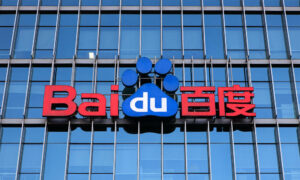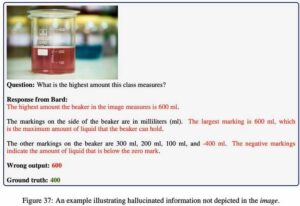
Asia In Brief Samsung has reportedly secured a massive sale of an AI accelerator it plans to launch in 2025.
Korean media report that Samsung execs revealed the existence of the device – named Mach-1 – at last week’s annual general meeting and described it as a system-on-chip that will improve the speed at which data moves from a GPU to memory by a factor of eight. That would enable inferencing to be performed without high-bandwidth memory.
Mach-1 means vanilla DRAM can do the job instead.
Samsung has reportedly sold $752 million worth of Mach-1 to Korean web giant Naver, which has already adopted CPU-based machines for some AI tasks as it seeks to reduce dependence on Nvidia and decrease its exposure to high-priced products that have long delivery times.
– Simon Sharwood
GoTo’s sale to TikTok bytes share price
Shares of Indonesian superapp GoTo dropped by nine percent last Wednesday, and have stayed at similar levels since, following the release of its results, which revealed a net loss of 90.5 trillion rupiah ($5.75 billion) for the financial year.
That loss was largely attributed to a $5 billion write-down related to a “strategic e-commerce partnership” with ByteDance’s TikTok, which saw the Chinese social media kraken buy a chunk of GoTo.
The deal allows TikTok a workaround to an Indonesia ban on social commerce.
“To date, our cooperation with TikTok is going well. The integration is well underway and early results show promise, giving us even more confidence in our original thesis,” stated CEO Patrick Walujo during an earnings call.
On the bright side, GoTo did report 77 billion IDR ($4.9 billion) in EBITDA. The biz announced a share buyback of up to 3.1 trillion IDR ($200 million), subject to regulatory and shareholder approval.
Fujitsu ends graduate job rotations
Japan’s Fujitsu has changed its hiring policies.
The tech conglomerate revealed last Tuesday that although it does plan to hire 800 new graduates in both fiscal 2025 and fiscal 2024, it will no longer take applications for non-specific jobs.
Grads will instead have to nominate for specific roles, with those keen on consulting roles in most demand.
Fujitsu also plans to recruit 1,000 mid-career workers, with consulting skills again at the top of its list as it tries to grow its Uvance digital transformation practice in line with its business development plan.
Tencent’s profit plunge
Chinese tech giant Tencent’s profits have plummeted, it revealed last Wednesday.
The outfit experienced a seven percent increase in fourth-quarter revenue, but profit for the period was RMB27.8 billion ($3.9 billion) – down a whopping 74 percent year-on-year. And profit attributable to equity holders for the quarter was RMB27.0 billion ($3.8 billion) – down 75 percent for the year.
CFO John Lo explained the latter was “primarily due to the 106.6 billion renminbi gained from the disposal of Meituan recognized in the same quarter last year.”
Meituan is an e-commerce platform that Tencent sold.
Singtel to build three AI datacenters
Singtel will build AI datacenters in Singapore, Thailand and Indonesia, the telco titan announced last Tuesday.
The datacenters will house Nvidia H100 GPUs and the accelerator giant’s next-generation GB200 Grace Blackwell Superchips. Singtel didn’t say how many GB200s it will acquire, nor when they will come online.
The centers will be used to house GPU as-a-Service (GPUaaS) business.
Baidu offers five different tweaked versions of its ERNIE LLM
Baidu AI Cloud last week announced the release of five more ERNIE models and an enhanced development toolkit, as part of a major upgrade its Qianfan platform.
The new versions of the LLM include ERNIE Speed, ERNIE Lite, and ERNIE Tiny – each named for their most important characteristic. ERNIE Character will address the roleplaying game market, while ERNIE Functions will help to integrate business functions and AI.
APAC dealbook
- McDonald’s China will adopt Microsoft AI, it announced on Wednesday. The biz said Microsoft Global Intelligent Cloud will promote full-process digital smart innovation research and development.
- IBM has celebrated a win at Vietnam’s TPBank, which has adopted Big Blue’s Cloud Pak for Data to modernize the its data infrastructure and enhance performance on all transaction channels. The deal will help TPBank prepare its data for uses in development of machine learning models.
- Telco wholesaler Chorus has partnered with critical digital infrastructure outfit Vertiv in an effort to expand its Auckland colocation offerings. Vertiv has been supporting Chorus within four four metro-based telephone exchange facilities repurposed into EdgeCentre modular datacenter sites, according to a press release. ®
- SEO Powered Content & PR Distribution. Get Amplified Today.
- PlatoData.Network Vertical Generative Ai. Empower Yourself. Access Here.
- PlatoAiStream. Web3 Intelligence. Knowledge Amplified. Access Here.
- PlatoESG. Carbon, CleanTech, Energy, Environment, Solar, Waste Management. Access Here.
- PlatoHealth. Biotech and Clinical Trials Intelligence. Access Here.
- Source: https://go.theregister.com/feed/www.theregister.com/2024/03/24/asia_tech_news_roundup/
- :has
- :is
- $3
- $UP
- 000
- 1
- 2024
- 2025
- 7
- 75
- 77
- 8
- 800
- 9
- a
- accelerator
- According
- acquire
- across
- address
- adopt
- adopted
- again
- AI
- All
- Alliances
- allows
- already
- also
- Although
- an
- and
- announced
- annual
- applications
- approval
- AS
- At
- Ban
- BE
- been
- Big
- Billion
- biz
- Blue
- both
- Bright
- build
- business
- business development
- business functions
- but
- buy
- Buyback
- by
- bytedance
- call
- CAN
- celebrated
- Centers
- ceo
- changed
- channels
- character
- characteristic
- chinese
- Cloud
- CO
- come
- Commerce
- confidence
- conglomerate
- consulting
- cooperation
- critical
- data
- data infrastructure
- Datacenter
- Date
- deal
- Deals
- decrease
- delivery
- Demand
- dependence
- described
- Development
- device
- DID
- didn
- different
- digital
- Digital Transformation
- disposal
- do
- does
- down
- dropped
- due
- during
- e-commerce
- each
- Early
- Earnings
- earnings call
- EBITDA
- effort
- eight
- enable
- ends
- enhance
- enhanced
- equity
- Even
- exchange
- Execs
- existence
- Expand
- experienced
- explained
- Exposure
- facilities
- factor
- financial
- Fiscal
- five
- following
- For
- four
- from
- Fujitsu
- functions
- gained
- game
- General
- giant
- Giving
- Global
- going
- GoTo
- GPU
- GPUs
- grace
- graduate
- Grow
- Have
- help
- hire
- Hiring
- holders
- House
- How
- HTML
- HTTPS
- huge
- important
- improve
- in
- include
- Increase
- Indonesia
- Indonesian
- Infrastructure
- Innovation
- instead
- integrate
- integration
- Intelligent
- into
- IT
- ITS
- Job
- Jobs
- John
- jpg
- Keen
- Korean
- Kraken
- Label
- largely
- Last
- Last Year
- launch
- learning
- levels
- Line
- List
- LLM
- Long
- longer
- loss
- machine
- machine learning
- Machines
- major
- many
- Market
- massive
- means
- Media
- meeting
- Meituan
- Memory
- Microsoft
- million
- models
- modernize
- modular
- more
- most
- moves
- Named
- Naver
- net
- New
- news
- next-generation
- nine
- no
- Nominate
- Nvidia
- of
- Offerings
- Offers
- on
- online
- original
- our
- part
- partnered
- Partnership
- patrick
- percent
- performance
- performed
- period
- plan
- plans
- platform
- plato
- Plato Data Intelligence
- PlatoData
- policies
- practice
- Prepare
- press
- Press Release
- primarily
- Products
- Profit
- profits
- promise
- promote
- Quarter
- recognized
- recruit
- reduce
- region
- regulatory
- related
- release
- report
- reportedly
- research
- research and development
- Results
- Revealed
- revenue
- roles
- s
- Said
- sale
- same
- Samsung
- saw
- say
- scores
- Secured
- Seeks
- seven
- Share
- shareholder
- show
- side
- similar
- Simon
- since
- Singapore
- Singtel
- Sites
- skills
- smart
- Social
- social media
- sold
- some
- specific
- speed
- stayed
- Strategic
- subject
- superapp
- Supporting
- Take
- tasks
- tech
- tech giant
- Telco
- Tencent
- Thailand
- that
- The
- their
- thesis
- they
- those
- three
- tiktok
- times
- titan
- to
- toolkit
- top
- transaction
- Transformation
- Trillion
- Tuesday
- Underway
- upgrade
- us
- used
- uses
- Uvance
- versions
- Vietnam
- was
- web
- Wednesday
- week
- WELL
- when
- which
- while
- will
- win
- with
- within
- without
- workers
- worth
- would
- year
- zephyrnet













